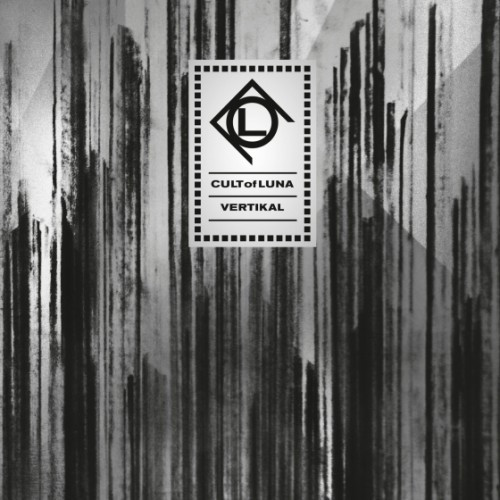(Andy Synn reviews the latest album from Sweden’s Cult of Luna.)
To our shame we almost missed this one. I don’t know why. I’d conjecture that it was simply one of those cases where everyone here at NCS assumed that SOMEONE must be doing a review, right? And hence no-one did a review, a situation which, if left unremedied, would have been a huge failure on our part, and would have led (quite possibly) to many of you missing out on one of 2013’s densest and most rewarding musical experiences.
Loosely inspired and influenced by Fritz Lang’s “Metropolis”, the album manifests as a seething monolith of despair and discordance, incorporating sections of sublime beauty and haunting ambience (both trademarks of the Cult of Luna sound) into its grinding cacophony of heaving aggression and backbreaking heaviness.
The rigours of a concept album are often demanding, and have broken many a lesser band. That Cult of Luna succeed (and succeed they most certainly do) attests to just how perfectly their sound and vision fits the themes at hand.
Life as a mechanism. Existence as industry. Loneliness. Alienation. Dehumanisation. These are themes that the band have either flirted with before, or been slowly drifting towards for some time – depending on where you stand and how you look at things.
The music follows suit. The brooding synthetic soundscape of “The One” evolves into the mechanical march of “I: The Weapon”, balancing artificial artistry with animal intensity, overlain with a synthetic skin of cold melody. There’s an undercurrent here, of loss, of longing, and of inarticulate rage, as the “one”, the “I” is co-opted into the machine.
In the aftermath of this we move onto “Vicarious Redemption”, a song of separation and observation, of glass houses and towering walls. The slow-burning introduction to this almost 19-minute epic has an inhuman coldness to it, a lifeless and desolate ambience, an almost blank canvas onto which the band slowly but surely paint drops of light and colour, before smearing this burgeoning perfection with a stain of dirty industrial smog and dehumanised anguish. This mid-song transformation evokes pictures of huge towers being erected, smoke-stacks rising as the wheels of industry begin to turn, breeding their own form of desolation, cramped and claustrophobic and choking, where once there was nothing. The listener rises with the song, pulled upwards by the inevitable force of progress, yet is kept at a distance, experiencing it all through a haze of scorn and separation.
“The Sweep” once more returns us to the synthetic and antithetical atmospheres of the album’s beginning, conjuring themes of repetition and recursion which underpin the album, wheels turning, towers climbing, bloodlines flowing, without purpose or direction, only the will to continue. This transforms into the bleak, industrial stomp of “Synchronicity”, whose juddering, twitchy riffs and oiled atmospherics pulse and pummel with a machine-like heartbeat, blurring the line between the organic and the inorganic. This is music of control, of careful categorisation. You are what you are made to be. A worker. A weapon. A part of the machine.
“Disharmonia” is a bitter lament for the loss of autonomy, the loss of life and colour, stamped out beneath the heel of progress and the pursuit of power. Yet at the same time it also functions as a hymn of defiance, an expression of humanity which provides a discordant note in the perfect harmony of the mechanised soul. This is reflected in the music, both melancholy and antagonistic, marrying sludgy heaviness to clear, crystalline melody. There is discordance in the system. An anomaly remains unchecked, sewing disharmony with every whispered breath, every crushing chord, every soothing sigh.
 “Mute Departure” is the calm before the storm. It is a symbol that something is passing, change is coming, a mute acceptance of something ending, not with a bang, but with a whimper. It leads breathlessly towards the story’s ending, the thrusting, propulsive advance of “In Awe Of”, which echoes the mechanised stomp of “I: The Weapon”, but turns it on its head in a revolution of power. This is the human element resurgent, still swathed in a shroud of electronic embellishments, but slowly gaining strength, rising to overthrow the dehumanising dominance of those who would make men into machines, little more than a composite of their form and function. There is imperfection, there is dissonance, there is RAGE, clad in a melding of flesh and bone, steel and piston, bleeding shock and awe.
“Mute Departure” is the calm before the storm. It is a symbol that something is passing, change is coming, a mute acceptance of something ending, not with a bang, but with a whimper. It leads breathlessly towards the story’s ending, the thrusting, propulsive advance of “In Awe Of”, which echoes the mechanised stomp of “I: The Weapon”, but turns it on its head in a revolution of power. This is the human element resurgent, still swathed in a shroud of electronic embellishments, but slowly gaining strength, rising to overthrow the dehumanising dominance of those who would make men into machines, little more than a composite of their form and function. There is imperfection, there is dissonance, there is RAGE, clad in a melding of flesh and bone, steel and piston, bleeding shock and awe.
The denouement of all this is found in “Passing Through”, whose dark melodies and soulful repetition let us mourn for all the chances lost and the mistakes we have made. It is not a climax, no victorious finale, but a tender, morose elegy. It does not resolve easily, or end triumphantly. It drifts away, aimless and lost, as alienated and isolated as it was when it all began.
Time is passing by. What have we learned? Has anything really changed?
There are no easy answers. Vertikal does not attempt to paint a world where there are. It’s a linear experience, a lesson, and a story, which provides many questions, but few resolutions. It leaves the interpretation to the listener. How will you connect? How will you respond?
Few albums reflect the day-to-day human experience as well as this one does. It, we, plough ever onwards, restless, relentless, aimless, seeking answers, resolutions, growing and expanding because we can, because we must, but never certain of why. What if there are no answers? What if, at the end of our rise, all that’s left is the fall?
Perhaps it doesn’t bear thinking about. Or perhaps it’s simply too late.



fantastic album, their best in my opinion 🙂
easily the best of the year contender.